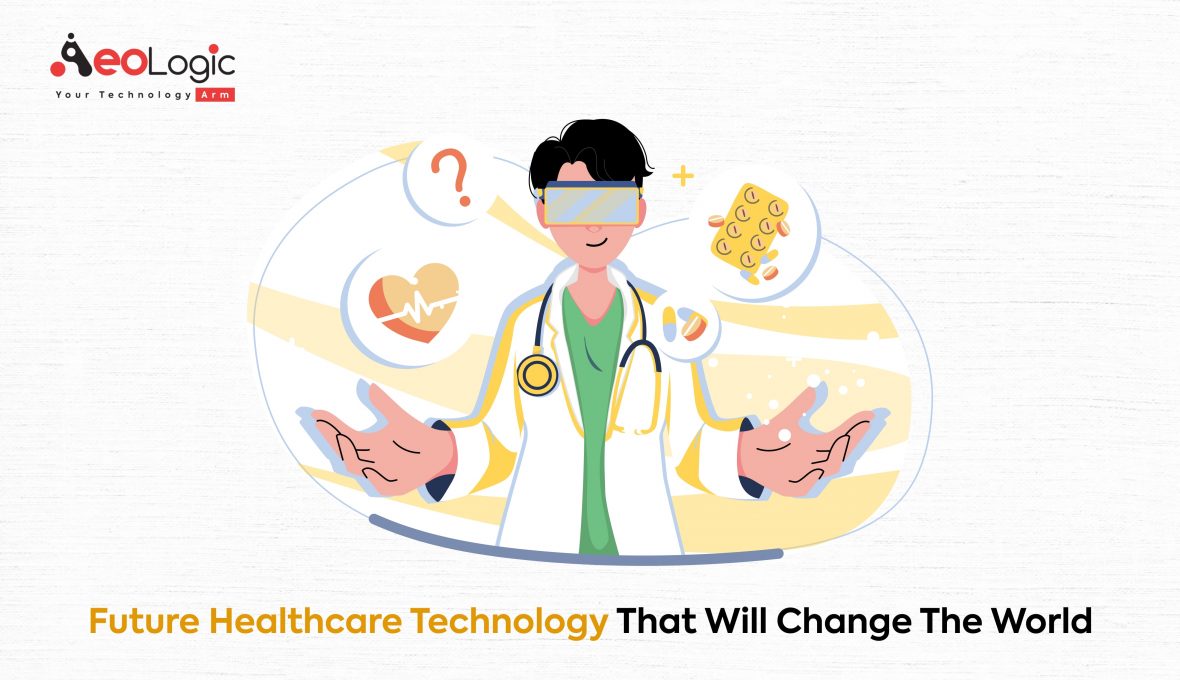The healthcare universe is transitioning into something we once only saw in futuristic movies. Remember the awe you felt watching sci-fi characters get scanned and healed instantaneously? Or the wonder of seeing virtual doctors diagnosing patients from a world away? Well, those scenarios aren’t as far-fetched as they once seemed. Let’s embark on a captivating journey to explore the wonders of the future of healthcare technology that’s turning those movie scenes into our reality. Let’s see!
Telemedicine: More than Just Video Calls
Gone are the days when seeing a doctor meant sitting in a stuffy waiting room reading old magazines. With telemedicine, we’re ushering in an era where health consultations are at our fingertips. But there’s more to come in the future of healthcare technology.
Imagine stepping into the realm of Virtual Reality Examinations. You put on a VR headset, and suddenly you’re in a virtual clinic, going through health checks under the guidance of a virtual nurse. Sounds like a dream, right? And here’s another game changer from the future of healthcare technology: AI-powered diagnoses. Remember the hours spent deciphering medical terms? Soon, AI will diagnose and break down conditions in straightforward language for everyday people like you and me.
Wearable Healthcare Devices
According to Statista, the wearable device market is booming. These devices are shaping up to be much more than mere step-counters.
In the world of the future of healthcare technology, we’ll have Mood Trackers that will offer insights into our emotional health, spotting patterns and emotional trends we might miss. And if that’s not futuristic enough, how about real-time blood analysis? Imagine devices that continually monitor our vitals, giving us timely nudges – perhaps a reminder that we’ve been indulging a bit too much on the sugary side.
Also Read: Information Technology Solutions for Healthcare
Customized Health Solutions
Who wants generic advice when the future of healthcare technology promises personalization? Brace yourself for DNA-tailored diet plans. No more hopping from one diet trend to another. Your meals will be aligned with what your DNA indicates is best for you. And speaking of customization, the prospect of 3D Printed Organs from the future of healthcare technology is inching closer to reality. Patients might not have to wait for donors anymore; a new organ could be just a print away.
Nanotechnology
Remember those movies where tiny robots did intricate surgeries from inside a body? It turns out; those weren’t just wild imaginations. Nanotechnology in the future of healthcare technology is paving the way for advancements like tissue repair at the cellular level. And for those battling illnesses like cancer, precision treatments could target only the harmful cells, leaving healthy ones untouched.
The Data Revolution
Data isn’t about cold numbers and spreadsheets; in the future of healthcare technology, it’s a dynamic dance of life-saving information. Through predictive analysis, hospitals won’t be merely reactive. They’ll anticipate needs. Envision a system that can foresee a flu outbreak and gears up in advance. And on a personal level, your devices might soon give you health forecasts. You might be alerted not just about tomorrow’s rain but also about the onset of a cold.
5 Ways Technology is Changing Healthcare
In the rapidly evolving world of medicine, technology is reshaping how we approach health and wellness. Here are five pivotal innovations steering this transformation:
1. Digital Health Records
Before the digital era, healthcare providers relied on paper-based records, making it cumbersome to retrieve, update, or share patient information. But with the introduction of Electronic Health Records (EHR), everything has transformed. Doctors can now access comprehensive patient histories at the click of a button, ensuring more accurate diagnoses. Plus, patients can easily switch healthcare providers without the hassle of transferring physical documents. With technology, we can even envision a global health network where doctors worldwide can collaborate using shared digital records.
2. Remote Patient Monitoring
One of the exciting breakthroughs in healthcare technology is remote patient monitoring. Devices like wearable heart monitors, blood pressure machines, and glucose monitors are now smart enough to transmit data in real time to healthcare professionals. This means if a patient’s vital signs show something alarming, immediate action can be taken, even if the patient is miles away from a hospital. Such monitoring is a lifesaver for those living in remote areas or for those who need constant monitoring but prefer the comfort of their homes.
3. Augmented Reality in Surgery
While surgery is an intricate art that demands immense precision, augmented reality is paving the way for even better accuracy. Surgeons can now use AR goggles or screens to superimpose a 3D digital image onto the patient. This can highlight specific organs, blood vessels, or problem areas, providing a roadmap for surgeons. This guidance reduces surgical times and improves outcomes. As the future of healthcare technology evolves, we can expect even more sophisticated AR tools in the operating room.
4. Chatbots for Initial Consultation
The initial phase of diagnosing often involves answering a bunch of questions. Enter chatbots: AI-powered virtual consultants that gather basic patient data and symptoms. Not only does this speed up the consultation process, but it also ensures that doctors have all the necessary initial information. These chatbots can also offer basic healthcare advice for minor issues, reducing the burden on healthcare facilities and directing patients to the right specialists when needed.
5. Virtual Health Assistants
Think of this as your personalized health companion. Using technology, Virtual Health Assistants (VHA) will be tailored to understand your unique health needs. Need a reminder to take your meds? Your VHA has got you covered. Feeling a bit under the weather? Your VHA might suggest some home remedies or advise if you should see a doctor. With advancements in AI, these VHAs will become increasingly intuitive, potentially predicting health issues before they become severe.
Also Read: The Importance of Information Technology in Healthcare
The Future Begins Today with Aeologic Technologies
As we envision this transformative journey in healthcare, it’s essential to partner with pioneers in the tech world. Aeologic Technologies stands at the forefront of these innovations, ensuring that the future of healthcare technology isn’t just a dream, but a tangible reality we can all experience. Dive into the future with Aeologic Technologies, where imagination meets innovation. Connect with us at Aeologic Technologies to be a part of this exciting journey.
Final Words
The tapestry of the future of healthcare technology is being woven with threads of innovation and promises of better health. It’s a beacon of hope ensuring that each one of us friends, family, and even the stranger next door has the opportunity to lead a healthier, more prosperous life.
There might be challenges ahead, but with the shimmering horizon of possibilities, one thing’s for sure: the future in the future of healthcare technology is something to look forward to.
FAQs
What is telemedicine, and why is it significant in the future of healthcare technology?
Telemedicine refers to the delivery of healthcare services using technology, usually over a distance. It’s significant because it offers patients access to medical expertise without geographical constraints, making healthcare more accessible and convenient.
How will wearable devices evolve healthcare technology?
Beyond tracking fitness levels, wearables will provide deeper insights into our emotional well-being, monitor vital stats in real-time, and even offer feedback on dietary choices based on our unique DNA.
Are 3D-printed organs in healthcare technology safe and reliable?
While the technology is still in development, the goal is to produce organs that are biocompatible and function as effectively as natural ones. They hold the potential to reduce transplant wait times and offer a perfect match for patients.
How will nanotechnology change healthcare in the future of healthcare technology?
Nanotechnology will allow for precise treatments at the cellular or even molecular level. It could lead to more effective therapies with fewer side effects, targeted cancer treatments, and innovative tissue repair techniques.






